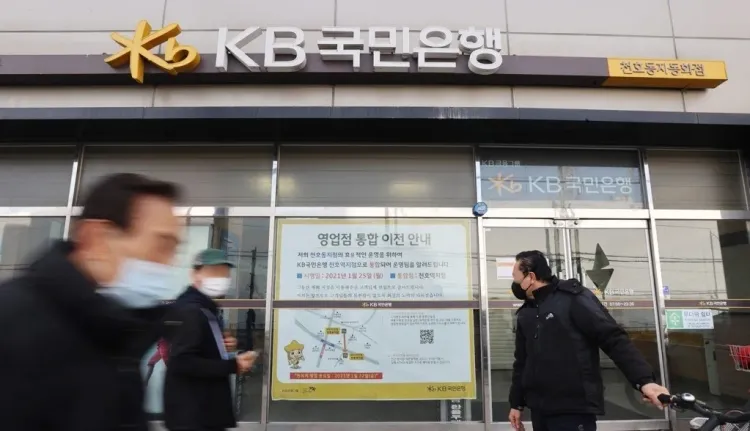Are Household Loans Rising in June Due to Booming Housing and Stock Markets in South Korea?

Synopsis
Key Takeaways
- Household loans in South Korea rose significantly in June.
- Major banks experienced a combined increase of 2 trillion won in loans.
- Unsecured loans reached their highest level since November.
- Real estate and stock market investments are driving demand.
- Financial regulators are considering measures to control the situation.
Seoul, June 15 (NationPress) Household loans provided by the five leading banks in South Korea are witnessing a significant uptick, as reported on Sunday. This surge is occurring in the context of a rally in local stock markets and indications of an overheating housing market.
Data indicates that household loans from major commercial banks such as KB Kookmin, Shinhan, and KEB Hana have increased by almost 2 trillion won (approximately US$1.46 billion) since the beginning of this month, bringing the total to 750.08 trillion won as of Thursday.
These banks have reported a consistent rise in new household loans, jumping from a monthly increase of 1.8 trillion won in March to 4.5 trillion won in April and reaching 4.99 trillion won last month, as per reports from Yonhap news agency.
Unsecured loans have reached 103.9 trillion won, marking an increase of 600 billion won over the same timeframe, thus achieving the highest level since November.
Market analysts suggest that the recent growth in household loans is driven by heightened interest in investing in both the real estate and financial markets.
In the first 12 days of this month alone, the five major banks have issued over 3 trillion won in new home-backed loans for property purchases, with home prices in Seoul rising at the fastest rate seen in nearly a year.
Last week, the sale prices of apartments in Seoul increased by 0.25 percent from the previous week, representing the most significant weekly rise since August of last year, according to separate data from the Korea Real Estate Board.
In light of the indicators of a burgeoning housing market, the Financial Services Commission and the Financial Supervisory Service are set to convene a meeting with officials from various financial institutions, including major banks, on Monday to discuss potential measures to control the recent increases in household loans, as per sources familiar with the situation.
Moreover, a substantial portion of the unsecured loans is believed to be allocated for investments in stocks and cryptocurrencies, with investors' deposits at securities firms reaching 62.9 trillion won as of Thursday—the highest level in over three years, based on data from the Korea Financial Investment Association.
The benchmark Korea Composite Stock Price Index (KOSPI) has seen a rise for seven consecutive sessions until Thursday, crossing the 2,900-point threshold for the first time since January 14, 2022.









